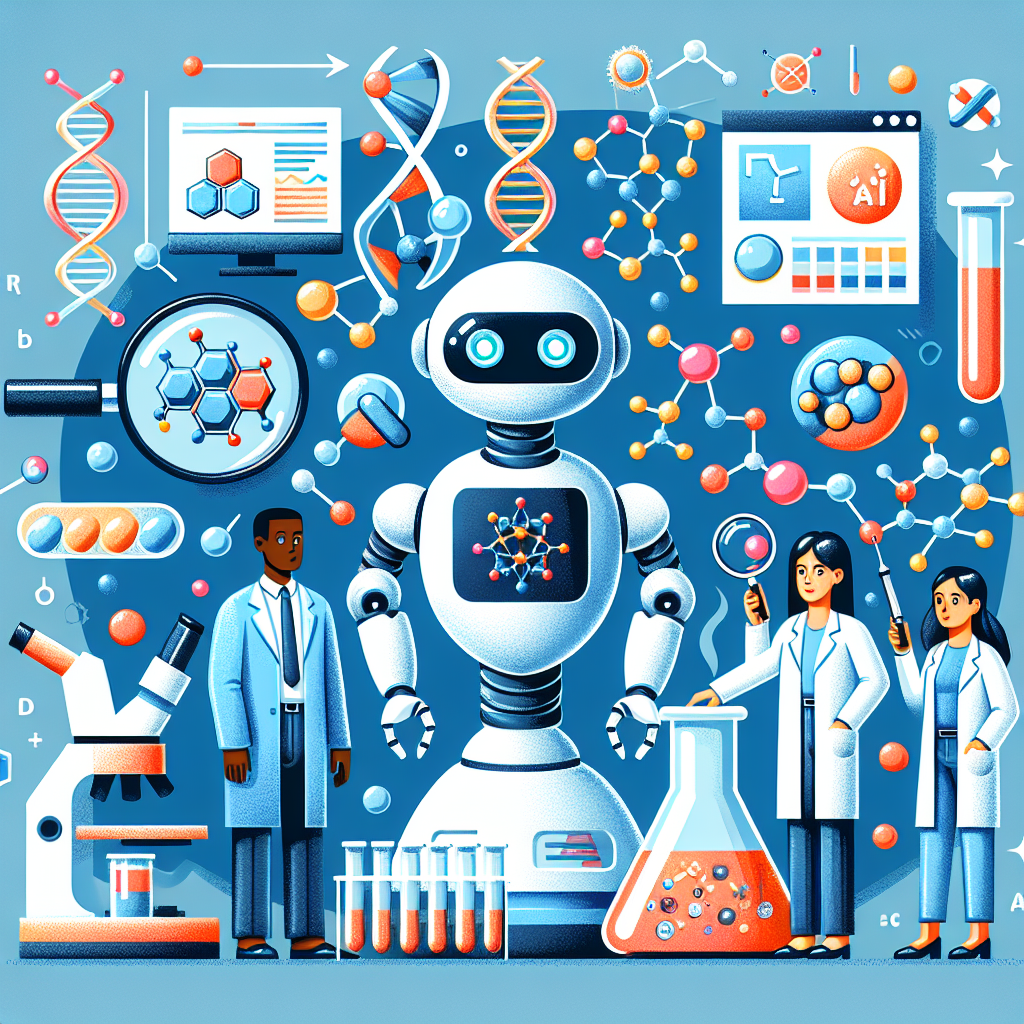In recent years, the pharmaceutical industry has seen a rapid advancement in the use of artificial intelligence (AI) in drug discovery and development. AI has revolutionized the way drugs are discovered, developed, and brought to market by speeding up the process, reducing costs, and improving the overall success rate of new drug candidates. Leveraging AI integration in drug discovery and development has the potential to transform the industry and bring about significant advancements in healthcare.
AI integration in drug discovery and development involves the use of machine learning algorithms, deep learning, natural language processing, and other AI technologies to analyze vast amounts of data, identify patterns, predict outcomes, and optimize drug development processes. By harnessing the power of AI, researchers and pharmaceutical companies can accelerate the discovery of new drugs, optimize clinical trials, and improve patient outcomes.
One of the key benefits of leveraging AI integration in drug discovery and development is the ability to analyze large datasets quickly and efficiently. AI algorithms can process vast amounts of data from various sources, including genetic information, clinical trial data, scientific literature, and real-world evidence, to identify potential drug targets, predict drug interactions, and optimize drug formulations. This allows researchers to make more informed decisions and streamline the drug development process.
AI integration also enables researchers to identify new drug candidates more effectively. By analyzing genomic data, protein structures, and other biological information, AI algorithms can identify potential drug targets that may have been overlooked using traditional methods. This can lead to the discovery of new drugs for diseases that were previously considered untreatable or difficult to target.
Furthermore, AI integration can help optimize clinical trials by identifying patient populations that are more likely to respond to a particular drug, predicting potential side effects, and optimizing dosing regimens. By using AI algorithms to analyze clinical trial data, researchers can design more efficient and effective trials, reduce costs, and accelerate the development of new drugs.
In addition to drug discovery and development, AI integration can also be used to improve drug safety and pharmacovigilance. By analyzing real-world data from electronic health records, social media, and other sources, AI algorithms can detect potential adverse drug reactions, monitor drug safety in real-time, and identify potential drug-drug interactions. This can help pharmaceutical companies and regulatory agencies ensure the safety and efficacy of new drugs and reduce the risk of adverse events in patients.
Overall, leveraging AI integration in drug discovery and development has the potential to revolutionize the pharmaceutical industry and bring about significant advancements in healthcare. By harnessing the power of AI, researchers and pharmaceutical companies can accelerate the discovery of new drugs, optimize clinical trials, improve drug safety, and ultimately bring more effective treatments to patients in a shorter amount of time.
FAQs:
Q: How does AI integration improve the drug discovery process?
A: AI integration improves the drug discovery process by allowing researchers to analyze large datasets quickly and efficiently, identify potential drug targets, predict drug interactions, and optimize drug formulations. This helps speed up the discovery of new drugs and streamline the drug development process.
Q: Can AI algorithms predict the efficacy of a drug in clinical trials?
A: Yes, AI algorithms can predict the efficacy of a drug in clinical trials by analyzing patient data, genetic information, and other factors to identify patient populations that are more likely to respond to a particular drug. This can help optimize clinical trials and increase the likelihood of success.
Q: How does AI integration improve drug safety and pharmacovigilance?
A: AI integration improves drug safety and pharmacovigilance by analyzing real-world data to detect potential adverse drug reactions, monitor drug safety in real-time, and identify potential drug-drug interactions. This helps pharmaceutical companies and regulatory agencies ensure the safety and efficacy of new drugs.
Q: What are some examples of successful AI integration in drug discovery and development?
A: Some examples of successful AI integration in drug discovery and development include the use of AI algorithms to identify new drug targets, predict drug interactions, optimize clinical trials, and improve drug safety. These advancements have led to the discovery of new drugs for diseases that were previously considered untreatable and have improved patient outcomes.
In conclusion, leveraging AI integration in drug discovery and development has the potential to transform the pharmaceutical industry and bring about significant advancements in healthcare. By harnessing the power of AI, researchers and pharmaceutical companies can accelerate the discovery of new drugs, optimize clinical trials, improve drug safety, and ultimately bring more effective treatments to patients in a shorter amount of time.

